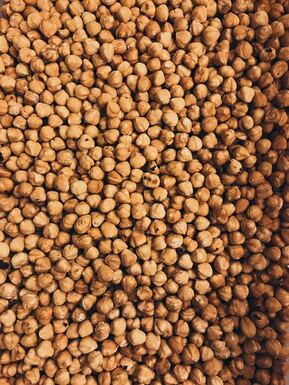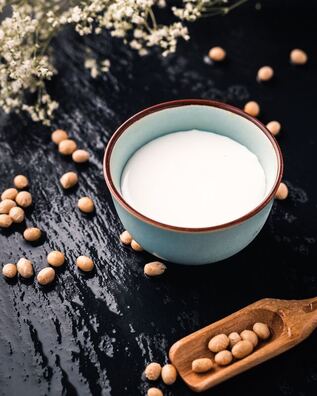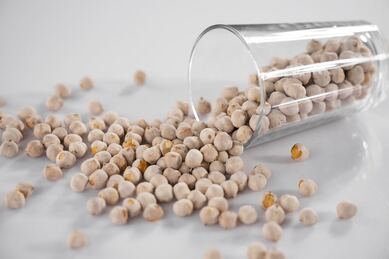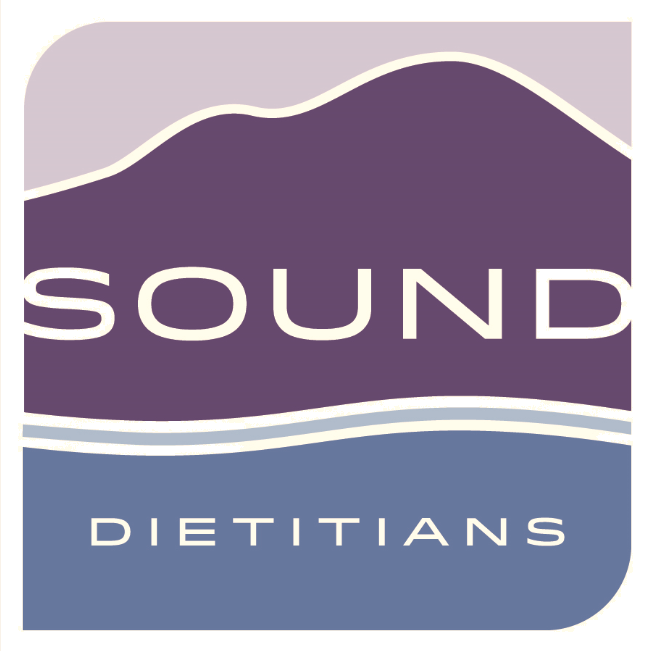|
Few foods have attracted as much controversy as soy. It is often praised as a nutritious vegan protein source, but there is also media speculation and research suggesting potential health risks of soy, leading some to avoid it altogether. So, how do we navigate what is accurate and what is a myth? What is Soy?
Soy Controversy The concerns about soy primarily arose from two sources:
With that background, let’s get to debunking some major myths that are SOY out of line! Myth #1: Eating soy increases breast cancer risk One of the central myths in the media is that soy can increase the risk of breast cancer. Confusion about soy and breast cancer comes from older rodent studies, where soy isoflavones were shown to promote the growth of breast cancer cells. This created concern about potential adverse effects in women diagnosed with breast cancer. However, current research shows that humans metabolize soy differently than rodents. These earlier studies in which soy isoflavones promoted the growth of breast cancer in mice relate to much higher blood levels of isoflavones than what would result from humans consuming soy foods. Recent studies have found no adverse effects of soy food intake on breast cancer occurrence or deaths. One study from the American Institute for Cancer Research (AICR) showed no increase in breast cancer risk with moderate (1-2 servings/day) or even higher (3+ servings/day) consumption of soy. If you thought that was a relief, get this! The American Cancer Society (ACS) states that modest amounts of soy may actually protect AGAINST breast cancer, and scientists from AICR state soy may reduce recurrence! Increased estrogen-triggering cell growth has been linked to certain types of breast cancer. Isoflavones have estrogenic and anti-estrogen properties and can block the more potent hormone estrogen from binding to cell receptors. According to Marji McCullough with the ACS, soy isoflavones can additionally “stop the formation of estrogens in fat tissue and stimulate the production of a protein that binds estrogen in the blood, making it less able to bind to the receptor.” Myth #2: Soy reduces testosterone levels and causes feminization in men This myth comes from people worrying that if isoflavones are a phytoestrogen and can act like estrogen, it might have feminizing effects on men or disrupt male fertility. The myth was furthered by rodent studies where high doses of phytoestrogens were shown to impair male rats’ ability to produce offspring. Again, current research shows that humans metabolize soy differently than rodents, so these studies do not apply to humans. Studies suggest there are no significant effects on testosterone concentrations in men when eating soy, nor is there a connection between soy and sperm count or fertility problems. There is also no evidence from clinical studies that isoflavone exposure affects circulating estrogen levels in men. BONUS: Early studies suggest including soy in the diet may help lower the risk of prostate cancer! Myth #3: Soy is not a suitable dairy replacement As more and more plant-based milk, yogurts, and butter come onto the scene (oat milk, almond milk yogurts, etc.), some assume the original milk substitute (soy!) must not be as good as the others. Soy milk is the most similar in macronutrients to dairy, with the highest natural protein of plant-based milk. When it is fortified with calcium, vitamin D, and B12, soy is almost identical to dairy nutritionally, and it is the one dairy alternative nutritionally recognized as a dairy replacement in the Dietary Guidelines for Americans 2020-2025. Bottom line? There is no evidence that soy is bad for you; it is actually beneficial for most people’s health.  Soy Benefits:
Soy is budget-friendly, versatile, nutrient-packed, and a great source of plant-based protein. Many soy foods are also available, but mainly aim for minimally-processed soy products such as edamame, tofu, and tempeh for the most health benefits! Overall, there is no reason to steer clear of soy foods (unless you have a soy allergy) and let outdated myths keep you from enjoying soy. Talk to your dietitian if you want to know more about adding soy to your diet! Alaina Brown, Dietetic Intern References:
Collins K. Soy and cancer: Myths and misconceptions. American Institute for Cancer Research. January 25, 2022. www.aicr.org/resources/blog/soy-and-cancer-myths-and-misconceptions/?gad=1&gclid=CjwKCAjw38SoBhB6EiwA8EQVLq1ZghmEfLSvow6gZz3UkbbNXYKdWoTQxAag86IxR19ZZwDbHVcFgRoCrvsQAvD_BwE. Messina M, Mejia SB, Cassidy A, et al. Neither soyfoods nor isoflavones warrant classification as endocrine disruptors: a technical review of the observational and clinical data. Crit Rev Food Sci Nutr. 2022;62(21):5824-5885. doi:10.1080/10408398.2021.1895054 Reed KE, Camargo J, Hamilton-Reeves J, Kurzer M, Messina M. Neither soy nor isoflavone intake affects male reproductive hormones: An expanded and updated meta-analysis of clinical studies. Reprod Toxicol. 2021;100:60-67. doi:10.1016/j.reprotox.2020.12.019 Rizzo G, Feraco A, Storz MA, Lombardo M. The role of soy and soy isoflavones on women's fertility and related outcomes: an update. J Nutr Sci. 2022;11:e17. Published 2022 Mar 7. doi:10.1017/jns.2022.15 Setchell KD, Brown NM, Zhao X, et al. Soy isoflavone phase II metabolism differs between rodents and humans: implications for the effect on breast cancer risk. Am J Clin Nutr. 2011;94(5):1284-1294. doi:10.3945/ajcn.111.019638 Wu SH, Shu XO, Chow WH, et al. Soy food intake and circulating levels of inflammatory markers in Chinese women. J Acad Nutr Diet. 2012;112(7):996-1004.e10044. doi:10.1016/j.jand.2012.04.001
0 Comments
Leave a Reply. |
SD BlogA place for our consultant Registered Dietitian Nutritionists (RDNs) to share nutrition science, yummy and healthy recipes, tips on seasonal ingredients, and other nutritional musings. Enjoy! Categories
All
Archives
May 2024
|




 RSS Feed
RSS Feed